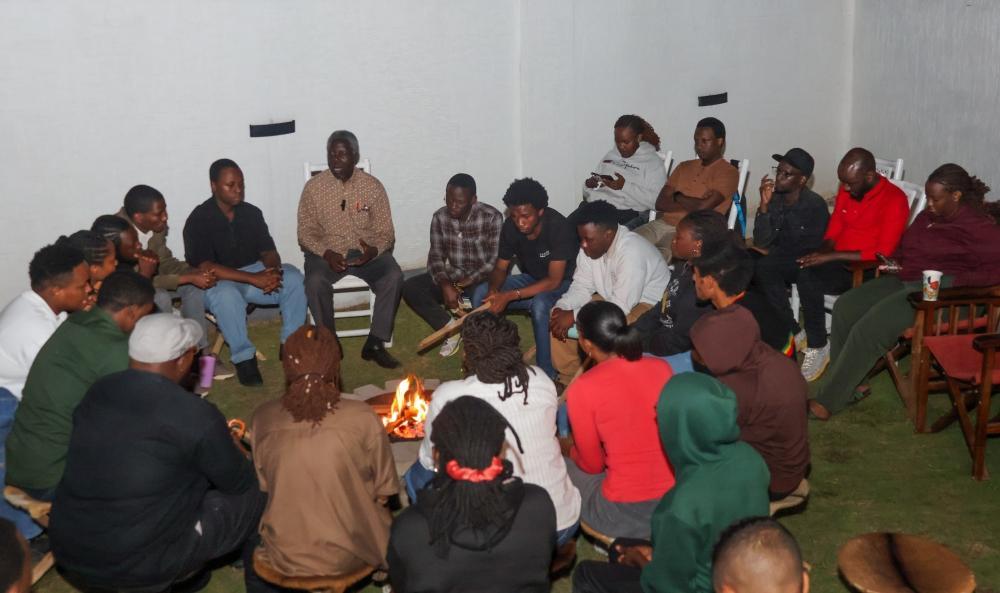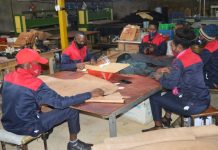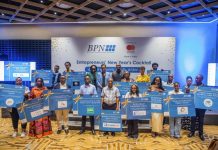Africa-Press – Rwanda. In the lead-up to Umuganura, Rwanda’s traditional harvest festival, a small cultural gathering dubbed ROTA is emerging, with the prospect of transforming young people’s perceptions on their heritage.
Held every Monday evening at The Circle in Kigali, ROTA—short for “dream” in Kinyarwanda—is a weekly event curated by Andersonne Uwineza.
It was created to respond to a growing cultural gap, especially among youth who struggle with their language, identity, and historical understanding.
What started as a space for children has expanded into sessions for adults aged between18 and 40 and beyond, offering a place to talk freely, ask questions, and exchange knowledge across generations.
The most recent session held on July 21 focused specifically on the history of Umuganura, with 69-year-old Augustin Gasake, a historian, invited to share his lived experiences from Rwanda’s past—including the time of kings, colonial rule, and post-genocide recovery.
Uwineza, who is championing the concept, said that ROTA is not just a cultural talk or a history lesson—it’s a space where people are encouraged to speak freely, even imperfectly, as they search for connection to their roots, adding that the goal isn’t to get everything right, but to keep trying, asking, and listening until something begins to click.
“We call it mumbling. You don’t need to be fluent or academic—you just show up and speak in the language you have. That’s how we start remembering things we were never taught. And this week, having someone like Augusta Gasake made it feel like we were finally tapping into something that’s usually hidden or silenced,” She said.
Uwineza explained that part of the reason she created ROTA was to make space for people to reconnect with culture in a way that feels natural and personal—not forced or academic. She believes that many Rwandans, especially youth, were simply never given the chance to ask real questions or hear full stories about where they come from.
“We weren’t given the tools to understand our own culture in school; they just skim over things. Here, you can ask why your name means what it means, or where a tradition comes from, and someone will actually answer you. That’s what ROTA is for,” she added.
Augustin Gasake, a storyteller and historian, saw his visit to ROTA as more than just a talk—it was a rare chance to reconnect young Rwandans with cultural values that have been fading, especially after the country’s most difficult chapters.
For him, Umuganura isn’t just a harvest celebration; it’s a tradition rooted in unity, gratitude, and identity—things he believes young people urgently need to reclaim.
“When young people ask questions, and they really want to know, that’s already healing something. I didn’t just come to explain history—I came to help them feel it again. And when the room responds, when it’s alive, that’s how you know it mattered,” he said.
For many attendees, it was their first time hearing about Umuganura beyond maize and celebration.
Kevin Ngango, a ROTA community member said that before coming to the session, he only saw Umuganura as a celebration—a time when Rwandans gather to eat after the harvest. But the discussion opened his eyes to the deeper meaning behind it, especially the way it was used to support those who didn’t have a harvest of their own.
“I thought Umuganura was just about eating together after the harvest. But now, I understand that it was also about helping others and preserving our culture. I learned things I never knew before,” he said.
Nadine Igihozo shared that the most surprising part of the evening was learning that the traditional Rwandan calendar didn’t begin in January, but in September—based on the agricultural cycle.
She had always thought of Umuganura as just a time for fun and food, but now she sees it as more than that.
“I used to think Umuganura was only about celebrating and eating, but I learned that in Rwanda, the year traditionally starts in September because that’s when planting begins. That changed how I see the whole celebration.”
Through storytelling, open dialogue, and questions often left out of formal education, ROTA is helping participants rediscover cultural traditions that still exist, but are rarely explained.
For More News And Analysis About Rwanda Follow Africa-Press






